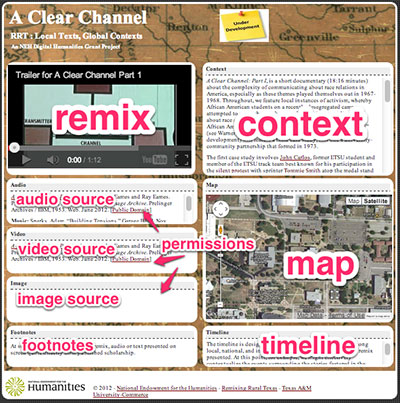 Remixing Rural Texas: Local Texts, Global Contexts is a visualization tool for archival research on the history of writing as expressed at multiple registers in local, underrepresented, understudied literacy scenes.RRT consists of two interlocking components: (1) critical race narratives about desegregation at a rural, southern university, remixed almost entirely from archival materials (“Remix”) and (2) a data source annotation tool that foregrounds relevant geographical and temporal elements as well as the original context of all source materials (“Prototype”). RRT demonstrates concrete ways historically marginalized populations in under-resourced, understudied areas can change our understanding of rhetoric's past.
Remixing Rural Texas: Local Texts, Global Contexts is a visualization tool for archival research on the history of writing as expressed at multiple registers in local, underrepresented, understudied literacy scenes.RRT consists of two interlocking components: (1) critical race narratives about desegregation at a rural, southern university, remixed almost entirely from archival materials (“Remix”) and (2) a data source annotation tool that foregrounds relevant geographical and temporal elements as well as the original context of all source materials (“Prototype”). RRT demonstrates concrete ways historically marginalized populations in under-resourced, understudied areas can change our understanding of rhetoric's past.
The RRT demonstration features local attempts by African American students to communicate about ongoing racism in ways that promote social justice in 1967-1968 on a campus that had desegregated only a few years earlier (1964). We take these local scenes as starting points, drawing attention to the network of texts populating the scene and demonstrating digital media’s capacity to reveal links among people, places, and time that enable literate social action (see Flower; Carter and Dent; Rice).
The Data Source Annotation framework emphasizes the temporal and geographical elements limiting and shaping any literacy scene (Royster; Gold) in an attempt to solve a problem common to writing researchers; local writers and their texts are largely situated by other relevant local texts generated and circulated at a particular time and place, but rarely are literate interactions entirely local in origin or effect (Brandt and Clinton). RRT builds upon digital media’s capacity to link by offering information layers beyond the linear narrative of the documentary itself that situate the stories within the much broader rhetorical, historical, scholarly, and geographical contexts.
Project Team
The RRT project development has been deeply interdisciplinary throughout, bringing together a project team consisting of the James G. Gee Library Special Collections, and the Faculty Center for Teaching with Technology and coordinated by the Converging Literacies Center (CLiC), an interdisciplinary research center for the study and support of writing and writers.
The Principal Investigator Shannon Carter, PhD, is a scholar in rhetoric and composition with a particular emphasis in community literacy and new media. Carter is also Co-Director of CLiC, the research center that led this digital humanities project. Andrea Weddle is the Director of Special Collections oversaw relevant archival efforts. Interim Coordinator of Multimedia Technology Michael Lewandowski and, later, David Moseley (Coordinator of Multimedia Technology) oversaw the technical aspects of project, including development of interactive, data source annotation tool and training on use of same. Lewandowski and Moseley also provided important support regarding the aesthetic and rhetorical dimensions of resulting multimedia production.
Especially important to the current project was the establishment in 2007of the A&M-Commerce Converging Literacies Center (CLiC), a research center designed to promote a better understanding of how texts and related literacy practices may develop, sustain, or even erode civic engagement across local publics, especially among historically underrepresented groups.
Converging Literacies Center (CLiC)
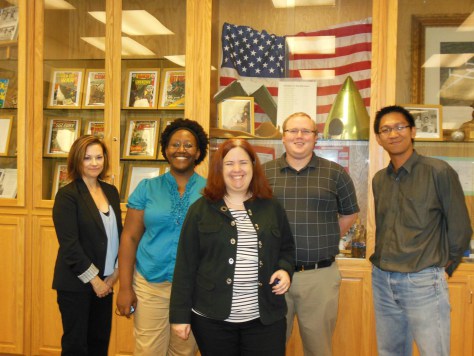 Especially important to the current project was the establishment in 2007of the Texas A&M-Commerce Converging Literacies Center (CLiC), a research center designed to promote a better understanding of how texts and related literacy practices may develop, sustain, or even erode civic engagement across local publics, especially among historically underrepresented groups.
Especially important to the current project was the establishment in 2007of the Texas A&M-Commerce Converging Literacies Center (CLiC), a research center designed to promote a better understanding of how texts and related literacy practices may develop, sustain, or even erode civic engagement across local publics, especially among historically underrepresented groups.
The CLiC team most directly responsible for RRT includes four graduate students from a variety of disciplines led by Shannon Carter, PI for RRT and CLiC Director.
- Shannon Carter, Associate Professor of English, CLiC Director
- Kelly Dent, MA Student, Political Science
- Jennifer Jones, PhD Student, English
- Sunchai Hamcumpai, PhD Student, English
- Adam Sparks, MA Student, History
Faculty Center for Teaching with Technology
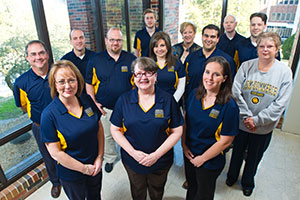 The FCTT helped CLiC create a working prototype for RRT, which they continued to define in deep collaboration with our evolving needs. In the first year, Michael Lewandowski worked with graduate research assistant Prasna Verna to design the initial prototype and being entering the data source annotations for the first remix we developed. In May 2012, Prasna graduated with her MA in Computer Science and Michael moved on to take a new position at a web development firm in Dallas. At that point, we began working closely with David Moseley, who replaced Michael in this position, and Shiva, to continue refining the RRT prototype and develop a website to house the project. In December 2012, Shiva graduates with his MA in Computer Science. Like Prasna and Michael before him, Shiva has ensured the project is exactly where it needs to be before going on to greater things. We couldn’t be more proud of both the project itself and the people who worked so hard to make it a reality.
The FCTT helped CLiC create a working prototype for RRT, which they continued to define in deep collaboration with our evolving needs. In the first year, Michael Lewandowski worked with graduate research assistant Prasna Verna to design the initial prototype and being entering the data source annotations for the first remix we developed. In May 2012, Prasna graduated with her MA in Computer Science and Michael moved on to take a new position at a web development firm in Dallas. At that point, we began working closely with David Moseley, who replaced Michael in this position, and Shiva, to continue refining the RRT prototype and develop a website to house the project. In December 2012, Shiva graduates with his MA in Computer Science. Like Prasna and Michael before him, Shiva has ensured the project is exactly where it needs to be before going on to greater things. We couldn’t be more proud of both the project itself and the people who worked so hard to make it a reality.
- David Mosley, Director of Multimedia Technology
- Shiva Kajipuram, MA Student, Computer Science
- Michael Lewandowski, Interim Coordinator of Multimedia Development (former)
Gee Library, Special Collections
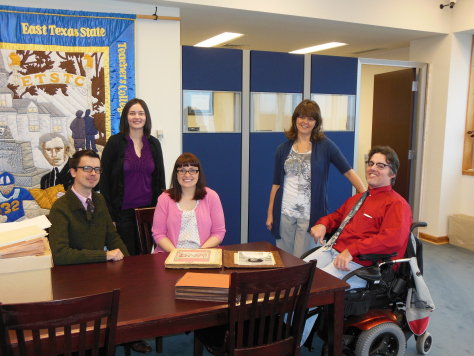 This project required extensive use of existing archives. Not only did the university archivists provide access to far more resources than we could have even considered accessing alone, but they processed the extensive archival materials we collected in the process of developing these archives. We collected dozens or oral history interviews in the year and a half we spent creating these remixes and data source annotations, and participants provided us with unprecedented access to images, documents, and other source materials vital to our understanding of African American history. In almost every case, the archival materials provided to us by local citizens for the creation of these remixes have been donated to the university library.
This project required extensive use of existing archives. Not only did the university archivists provide access to far more resources than we could have even considered accessing alone, but they processed the extensive archival materials we collected in the process of developing these archives. We collected dozens or oral history interviews in the year and a half we spent creating these remixes and data source annotations, and participants provided us with unprecedented access to images, documents, and other source materials vital to our understanding of African American history. In almost every case, the archival materials provided to us by local citizens for the creation of these remixes have been donated to the university library.
Andrea Weddle, Director of Special Collections

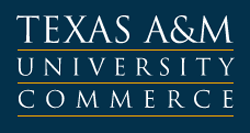

 Creative Commons-
Creative Commons-